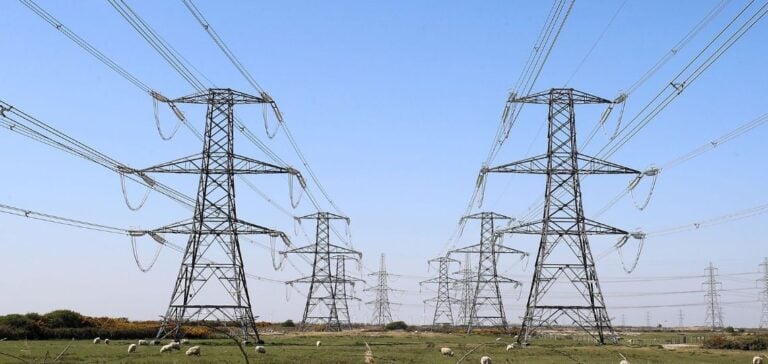Energy provider SSE plc, through its subsidiary SSE Transmission (SSEN Transmission), has presented its strategic investment plan to the UK regulatory authority Ofgem. This plan, part of the RIIO-T3 price control framework (2026-2031), foresees investments totaling £22.3 billion to modernize and reinforce electricity infrastructure in northern Scotland.
This massive program aims to achieve three major ambitions: ensuring reliable energy supply, increasing the network’s capacity to meet 20% of the UK’s clean energy needs, and leaving a lasting legacy for local communities.
An investment structured in several phases
SSEN Transmission’s financial strategy includes an initial expenditure of £6 billion, supplemented by £16 billion in strategic investments already approved under the ASTI (Accelerated Strategic Transmission Investment) and LOTI (Large Onshore Transmission Investments) mechanisms.
Additionally, up to £9.4 billion could be mobilized for future projects, although these investments depend on regulatory approvals, industry reforms, and supply chain security.
A lever to achieve climate goals
The investment aims to support the climate ambitions of the UK and Scottish governments, particularly the “Clean Power by 2030” mission. By ensuring a transition to cleaner energy sources, this plan is positioned as a key response to energy security and decarbonization challenges.
According to independent economic analysis by BiGGAR Economics, these investments could generate up to 37,000 jobs in the UK, including 17,500 in Scotland and 8,400 within SSEN Transmission’s operating area. These activities would inject approximately £15 billion into the UK economy, including £7 billion in Scotland.
Significant local and social benefits
Beyond the overall economic impact, SSEN Transmission plans significant benefits for local communities. More than £100 million will be allocated to community projects during the RIIO-T3 period. The plan also includes the construction of at least 1,000 new homes in northern Scotland, addressing local housing needs and supporting construction workers.
Alistair Phillips Davies, CEO of SSE plc, emphasizes the urgency of decisive action: “The RIIO-T3 price control comes at a critical juncture to secure a cleaner, more affordable energy future. We urge Ofgem to establish a robust financial framework to enable these essential investments.”
Rob McDonald, Managing Director of SSEN Transmission, adds: “Our RIIO-T3 plan represents a realistic roadmap to unlock the investments needed for the UK’s energy transition and supply security.”






















